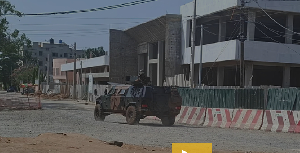It cannot be taken for granted the disclosure by the management of the Korle-Bu Teaching Hospital (KBTH) that in a bid to remain at the forefront of medical progress both locally and internationally, it intends to establish an ultramodern learning, research, and innovation center to enhance its health service delivery.
This is because since its opening on October 9, 1923, as a general hospital and 200-bed facility, the healthcare centre has come to be a teaching hospital and is now a 2,000-bed entity and still growing.
It is currently the largest hospital in West Africa and the leading national referral centre in Ghana.
Its facilities and services, including DNA investigations, draw international patients, particularly from neighbouring countries such as Nigeria, Burkina Faso, and Togo.
Since the KBTH continues to introduce specialised services, it is the prayer of the Ghanaian Times that its fresh initiative, dubbed the Legacy Project, an 18-million dollar facility, could be completed within the scheduled two-year period to earn it the envisaged status of a one-stop reference facility for medical discoveries to address present and future health problems.
The good health of people everywhere is society’s great asset because it needs healthy people to ensure its development and progress.
Therefore, if that society has a good healthcare system, including modern facilities and excellent services, coupled with affordability, then the good health of the people is a given.
However, there is one important area mentioned by the management in which the Ghanaian Times is particularly interested.
The fact that moving forward, the hospital would view its clients as its major stakeholders, putting measures in place to maintain and boost clients’ confidence in the hospital is a very important matter.
Obviously, patients are the major clients of every hospital and so this paper is gladdened by this position.
Oftentimes, the bad attitudes of healthcare professionals, particularly nurses, negatively affect some patients.
Some nurses are abusive and take advantage of the vulnerable state of some patients to abuse them.
If KBTH should be among the best hospitals in the world, then first, its personnel, particularly nurses, should have an excellent character that can boost patients’ confidence and be a reference point for nurses everywhere to emulate when it comes to making patients feel at home.
It is, therefore, a good decision that the management of the hospital has started a patient feedback system under which they will take note of the specific concerns of patients in order to address them.
Why should any patient in their right senses refuse to visit the KBTH and for that matter any healthcare facility in the country until their condition gets worse at which point they would be bundled there by family members?
Everyone, no matter who is or the prevalent condition he or she is in, would like to be accorded respect and dignity, which some nurses and other hospital workers are in the habit of denying them.
Other serious issues like having to contact someone before getting a bed to allow for a certain treatment to start should also die.
Is it true that some doctors are paid bribes before they accept to treat some patients because of their peculiar condition?
Like any other hospital, the KBTH should ensure that all efforts there to save lives are backed by respect and dignity for patients.
Editorial News of Tuesday, 3 September 2024
Source: ghanaiantimes.com.gh













